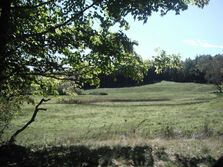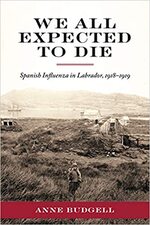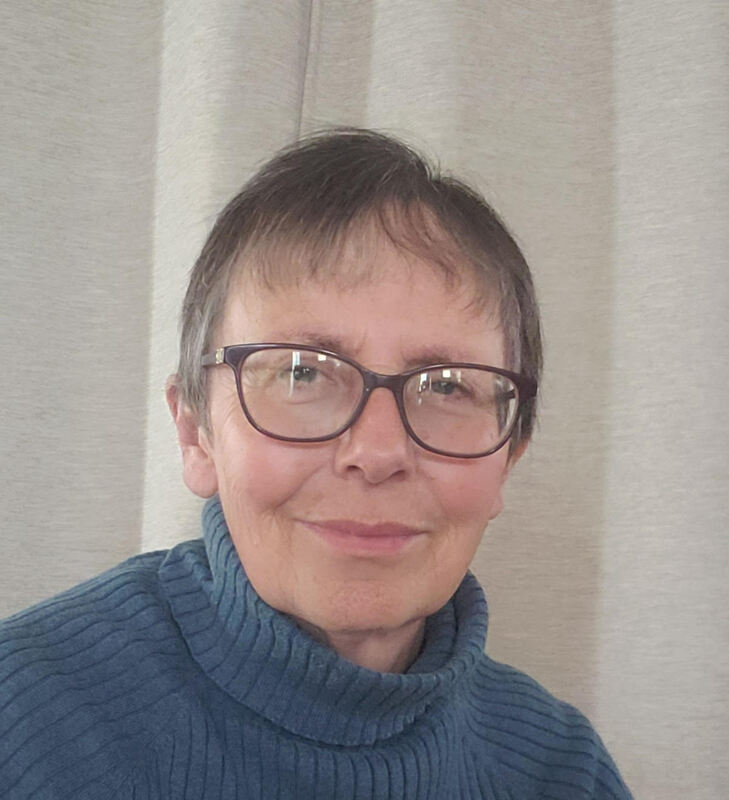AuthorAnne M. Smith-Nochasak: Archives
July 2024
Categories |
Back to Blog
To the People of Home10/19/2022  "I want to raise them up in benediction, for there is a divine spark in each human moment to be blessed. These are real people I lift up, people who may have gossiped and hated, but have also dreamed and loved. They carry you in their hearts, whether they understand you or not." Rachel Hardy, in A Canoer of Shorelines I grew up in a small rural community, and yes, we fit the stereotype for curiosity. At the same time, we always have each other's back.
Rachel, in A Canoer of Shorelines, learns through her journal reflections the intimacy and love that define a small community; her counterpart Julie, in the present, is in the process of learning this. Julie, in the novel, is suspicious of everyone in her new surroundings, imagining that they are slowing down as they pass, evaluating her past, present, and future failures. She dreads leaving the staffroom, sure that the moment the door closes behind her, they will be analyzing her failings. She "knows" that the neighbours will race for the phone to let her landlord know that she has set his lawnmower on fire. The truth is, people are interested: I wonder how she'll manage that big place; will she want help? Does she know the long history of that place? Now she'll remember to check the chaff around the engine; no harm done at least. The judgments are generated in the mind of Julie. Those of us from small communities are used to the infrastructure. During my travels, a member of an isolated community commented that whenever they saw me out walking, they appreciated the way I waved to everyone. Well, if I went walking along the roads of home and didn't wave, people would probably stop and ask if everything was all right. People care about you, so you wave, and let them know all is good. Do we watch one another? Definitely! Once, I stopped to visit a friend, and a sudden rain came on. I closed my car door and sprinted the few metres to her door. By the time I reached my friend's kitchen, someone was phoning to tell her that the person in her driveway had left their windows down. I will take that attention any day and thanks! And then there was the time that I arrived for Christmas, having been unable to do so for years. As my son and I strung lights around the front verandah, a car paused at the end of the driveway. Then the horn was blowing, lights were flicked on and off, and the car moved on. And I felt the joy of knowing that my homecoming was seen and blessed. A special time involved the installation of the security system. After the installation, I went to town, and returned to discover the alarm had gone off repeatedly. An elder and veteran from World War II had started his car and driven up, fearing that the place was burning. "You should not put yourself in danger like that," I told him. "That is a burglar alarm, and what if you had been hurt?" "Not much danger of that!" he replied. "Everyone else was already there!" Are we curious? Definitely! But it is not an idle curiosity; it is the curiosity of community that looks after its own. The people of home have guarded my going up and my coming down. They are the ones who know all my story and love me anyway. Yes, I have a little fun sometimes when I write, but anyone who reads it all knows that they are everything to me. Home can be a physical place or a place tucked deep in the heart. Home is the people who guard your memories. I cannot describe how moved I was when people of home stepped up to support my writing journey with A Canoer of Shorelines. I tell my stories by fiction, but they are rooted in the world that has been with me from the beginning. And I have discovered that people far away share that world. They have their Meadowbrooks, their Lailas, their aunts like Rachel's aunts. My next book, The Ice Widow, takes place far from Meadowbrook, and is again fiction. I have tried to work out some things, and fiction is the way I do it. Some day, though, maybe I will gather the stories that have made me smile all my life, gentle stories of truth and warmth, the precious stories that define my people of home. Blessings, my friends.
0 Comments
Read More
Back to Blog
Acadian Grandmothers Vs. the Plague10/5/2022  My Acadian grandmother did not mess around while polio raged through her world; she prayed fervently and washed every surface, especially the doorknobs, with Dettol. In my mind I see that little figure marching down the road, one fist raising her rosary beads high, the other brandishing a bottle of Dettol and a cleaning rag.  In this ramble, I am not writing to promote my books; I mention them only to lead into my topic, which concerns our relationship with vaccines and illness. I mention my books only to point out that, for better or for worse, I seem unable to escape the topic. My first novel, A Canoer of Shorelines, was drafted long before the current pandemic came into our lives. Editing during the pandemic was an emotional experience, for the characters seemed so innocent, not shadowed by the dark events of our times. Even their grief seemed uncluttered and gentle. My upcoming novel was drafted during this pandemic, and makes references to pandemics past, present, and to come. It is driven by love, not by vaccination hesitancy or pandemic mandates, although the mandates will be the catalyst to a most interesting winter. It is officially autumn, and I have received my fall dose of the Covid vaccine, which will provide protection against the newer variants featuring letters and numbers that make me think of the additional exit ramps. Exit 1A lies between Exits 1 and 2, 1B lies between A1 and 2, so a new exit between 1A and 1B would be....1Ai?) Anyway, I have a good level of protection. Which brings us to polio. As a child of the fifties, I was part of the first generation to receive the polio vaccine. Vaccine and booster time at school was exciting. The arm would throb for days, and we would do our best to get it in our dominant arm, so we could get out of school work. Alas, in those times that would result in a conversation along these lines: Child (whimpering): I can't write. My arm hurts too bad. Parent: Didn't you tell them you were left-handed and needed it in your right arm??? Child: N-n-nooo? Parent: Well, it serves you right then. Fill the wood box and get to your homework. A variation on the conclusion might include: That will take your mind off your arm. Perhaps some of you will remember the aftermath of the booster -- being punched in the booster site by the playground bully. Or, classmates lining up to punch the booster site. If you got through that without flinching, you got real playground cred! You displayed your throbbing arm with a smile. Until homework time! Those were different times. Our parents were not mean; they expected good decisions from us. Since they had grown up with polio, they were grateful for any intervention. I recall my mother saying how her family always dreaded summer, for that was the season of polio. Her mother, my dear Acadian grandmother, raised eight children through many summers when polio was all around them. At one point, they even moved from their community to escape the worst infection. My Acadian grandmother did not mess around while polio raged through her world; she prayed fervently and washed every surface, especially the doorknobs, with Dettol. In my mind I see that little figure marching down the road, one fist raising her rosary beads high, the other brandishing a bottle of Dettol and cleaning rag. My Acadian grandmother would have brought the current pandemic to heel without batting an eye. When the vaccines began, no one challenged or questioned. Many children had been lost, and survivors suffered with effects for the rest of their lives. There was loss of mobility. There were heart conditions. The vaccines meant the worst of shadows had been lifted. My Acadian grandmother continued to pray her rosary and scrub the doorknobs anyway. There was more than one disease out there, after all. Just before the pandemic, I read Anne Budgell's We All Expected to Die on the impact of pandemics, focusing on the Spanish flu, on the coast of Labrador. The stories of the survivors are horrific; the abandonment and the hopelessness endured shake the soul. When pandemics arise, their stories are a warning for the present. Illness and our coping strategies might be the defining characteristic at this point in time. That does not mean that joy is past. My Acadian grandmother did not just wipe down pump handles and doorknobs; she made delicious rappie pie and raised her children with laughter. I see her with her rosary and Dettol bottle, yes, but most of all I remember her smile. As the throbbing in my fall dose arm receded (possibly from the exercise of sawing small trees), I heard on the news that, due to extended power outages during the hurricane, a number of vaccines in storage were now invalidated. I guess some of us will be getting a letter, advising us we have to line up and roll up again. I guess we will have an especially sore arm to display on the playground. I will roll up, if I get the letter, but most of all, I will carry my Acadian grandmother's lessons always in my heart. |
ANNE M. SMITH-NOCHASAK

 RSS Feed
RSS Feed
